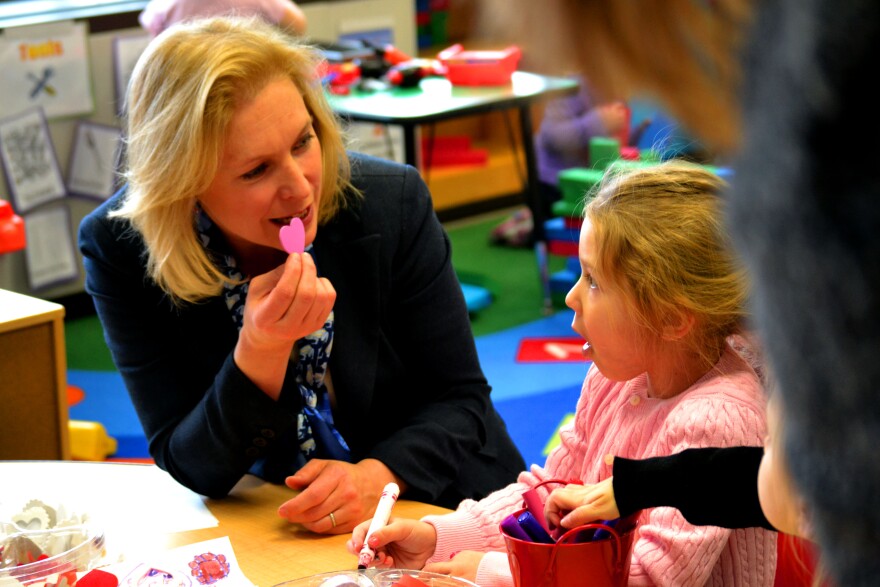Rep. Richard Hanna and Sen. Kirsten Gillibrand played with blocks and Elmer’s glue at a pre-kindergarten classroom in Herkimer Monday before introducing a proposal to fund universal early education on a federal level.
The argument Gillibrand, a Democrat, and Hanna, a Republican, are making is that funding universal pre-kindergarten is an investment, not an expense.
But it’s a big investment. It will cost $75 billion over 10 years, Hanna said at a press conference following their class visit. He says it’s “a shame” kids from poor families don’t have the same opportunities as those from wealthy ones, like affording private early education.

"If we don’t step in and guarantee universal pre-K education for every young person born in this country today, we are condemning them to a life that will not produce better children for them," he said.
Gillibrand says it also benefits families.
"When more children have access to pre-K, they actually can reach their full potential," she said. "It means more working moms can stay in the workforce, providing for their children, staying on the path for their career success. And that’s good for our whole economy."
Gillibrand and Hanna say more education will decrease crime rates in the future. Sending children to pre-kindergarten is cheaper than paying for them to be incarcerated as adults, they say.
"We have an opportunity through investing in early childhood education to move people ahead of where they might otherwise be," said Hanna. "It is a 25-year project to rebuild a generation of people, but we need to do it."
Gillibrand says funding could come from decreasing the guaranteed profit margins for crop insurance companies in the current Farm Bill proposal.







